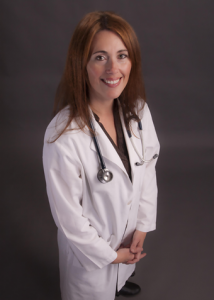What if We Knew Chronic Disease Could Be Reversed?
 Seven years ago, Nicole Shorrock, MD, experienced a personal and professional crisis after her 37-old husband was diagnosed with multiple sclerosis (MS). Treatment of this chronic illness involved aggressive and expensive medication that, at best, could only slow its progressive neurological decline. According to modern medicine, MS is incurable.
Seven years ago, Nicole Shorrock, MD, experienced a personal and professional crisis after her 37-old husband was diagnosed with multiple sclerosis (MS). Treatment of this chronic illness involved aggressive and expensive medication that, at best, could only slow its progressive neurological decline. According to modern medicine, MS is incurable.
At the time, Dr. Shorrock, a pediatrician in El Dorado Hills, California, had been practicing medicine for 10 years. A strong nurturer even as young child, she had entered medicine eager and excited to learn how to heal patients, reverse disease, and, ultimately, foster a true sense of well-being. Although she had practiced up-to-date pediatrics, mastering conventional medicine to the best of her ability, she found herself increasingly frustrated, as she was seeing a growing number of patients with chronic illnesses. She didn’t know why these illnesses were plaguing them, and didn’t know how to treat them.
In retrospect, Dr. Shorrock points to the limitations of her medical training. She had been trained how to stop symptoms of an illness and didn’t realize that even though treating symptoms soothed her patients, it did nothing to reverse or stop the progression of their underlying illness. More importantly, she says, she didn’t realize that these seemingly trivial childhood conditions, if left unaddressed, would progress to serious chronic diseases in adulthood – until her husband’s MS diagnosis completely changed her outlook.
At a leading MS center, she was terrified as she listened to a neurologist describe her husband’s treatment options and prognosis. When the doctor said her husband would need daily injections of immunosuppressant medications for the rest of his life, she thought, “That’s not right.” And when he said that nutrition didn’t matter, she knew she could no longer put faith in a conventional approach. She says that the illness of the person who was closest to her had created a vulnerability that allowed her to open up and question all that she had learned.
As scary as it was for Dr. Shorrock and her husband to abandon the comfort of conventional MS treatment, she knew they had to do it. So, she began exploring integrative medicine. She especially liked that integrative medicine focused on the root cause of illness, that it embraced a holistic approach that addressed mind, body, and soul with time-tested treatments like nutrition, herbs, and homeopathy.
Through a regimen of healthy nutrition, yoga, meditation, and a personalized approach to support his immune system, her husband reversed his chronic disease, a feat that she had thought was impossible. Dr. Shorrock’s exploration of integrative medicine continued, and eventually, she built it into her practice. Today, she is committed to helping her patients reverse their chronic illnesses.
She says that when she began practicing functional integrative medicine, for the first time, her outer learning resonated with her inner knowing, a powerful combination that created healing opportunities for her patients.
Dr. Shorrock demonstrates exemplary dedication to reversing chronic illness through an integrative approach to medicine that treats the root causes instead of the symptoms. Our Member Board, the American Board of Integrative Medicine® (ABOIM®), offers board certification in integrative medicine for like-minded physicians inspired by Dr. Shorrock’s story. For information about the ABOIM, contact the ABPS today.






